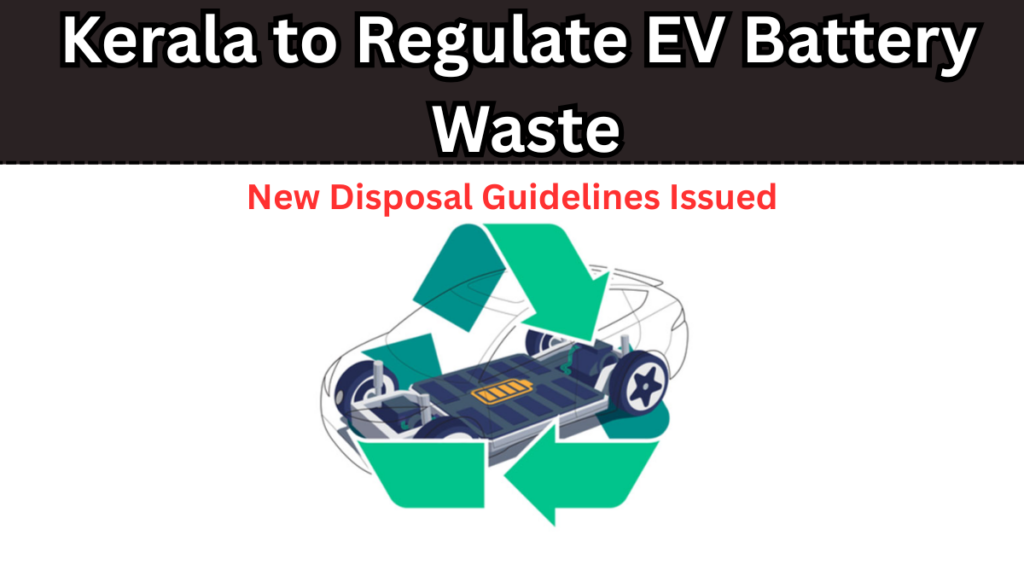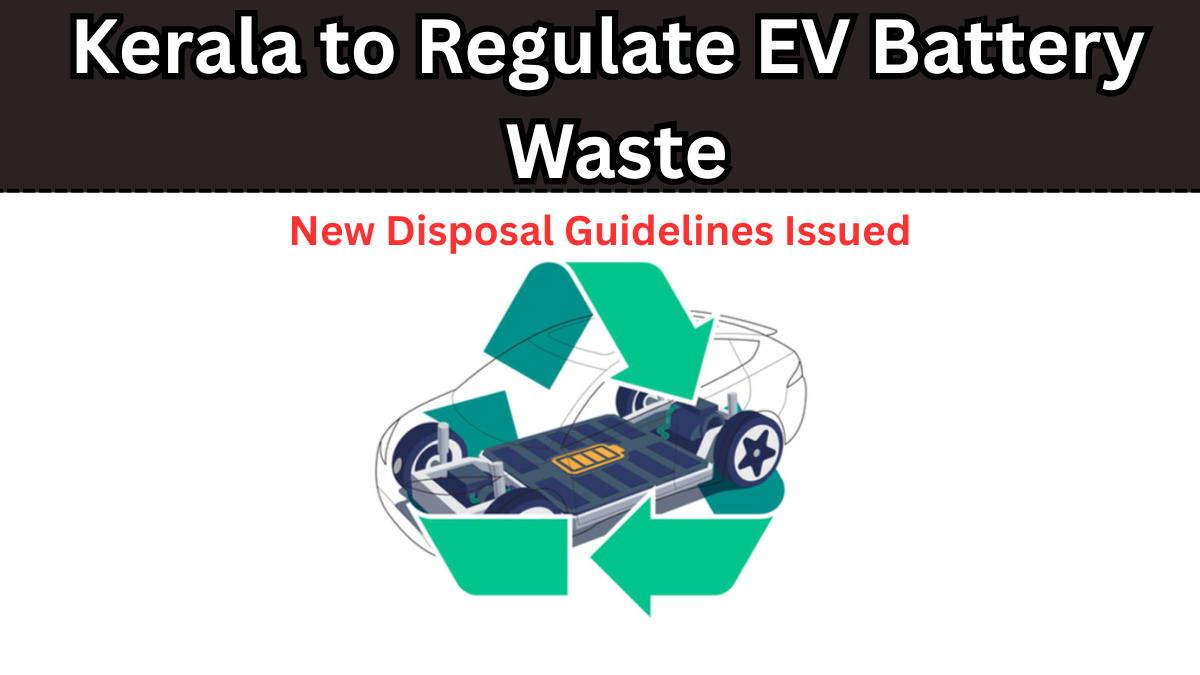As electric vehicles (EVs) become increasingly popular across India, Kerala is taking a critical step in addressing one of the major challenges of the EV revolution—EV Waste Disposal. The state has now introduced new guidelines to ensure safe and responsible battery recycling and disposal.
Let’s break down what these new rules mean for EV users, manufacturers, and the environment.

Why EV Waste Disposal Matters
The rise in EV adoption brings a significant concern: how to manage used batteries. Without proper disposal, these batteries can pose serious risks.
Key Concerns:
-
Toxic Chemicals: EV batteries contain hazardous substances like lithium, nickel, and cobalt.
-
Fire Hazards: Incorrect disposal can cause fires or explosions.
-
Environmental Damage: Leaking batteries can contaminate soil and water sources.
Kerala’s new approach focuses on preventing these dangers through strong EV Waste Disposal policies and a structured battery recycling system.
New EV Battery Disposal Guidelines: What You Need to Know
Kerala’s updated policy outlines strict steps to regulate the collection, tracking, and recycling of EV batteries.
Key Highlights:
-
Manufacturer Responsibility: EV manufacturers must establish collection centres for used batteries.
-
Battery Tracking: Every EV battery must carry a unique ID for proper tracking.
-
Certified Recyclers: Only authorised recycling facilities can process EV batteries.
-
User Participation: EV owners must return old batteries to approved collection points.
Kerala’s EV Waste Disposal Framework
| Component | Guideline |
|---|---|
| Manufacturer Role | Must collect and manage used batteries |
| Battery Identification | Unique serial numbers for tracking |
| Recycling Centres | Only certified facilities allowed |
| User Responsibility | Must return batteries to proper collection points |
How Battery Recycling Will Be Managed in Kerala
Kerala’s battery recycling strategy is focused on safety, sustainability, and public involvement.
Important Steps:
-
Collection Network: Accessible drop-off centres across major cities and towns.
-
Recycling Process: Safe extraction and reuse of valuable materials like lithium and cobalt.
-
Environmental Checks: Strict monitoring of recycling plants to control pollution.
-
Public Awareness: Educational campaigns to encourage safe and proper EV Waste Disposal.
Expected Benefits of the New EV Waste Disposal Guidelines
The newly introduced guidelines bring several positive impacts:
Key Benefits:
-
Eco-Friendly Practices: Helps reduce soil and water pollution.
-
Battery Reuse: Promotes circular economy by recovering battery materials.
-
Safe Transport: Minimises fire and health risks from improperly discarded batteries.
-
Organised Recycling: Ensures legal and sustainable battery recycling.
FAQs
1. Why is EV Waste Disposal so important?
Proper EV Waste Disposal helps protect the environment, reduces safety risks, and promotes battery recycling to recover valuable materials.
2. How can I dispose of my old EV battery in Kerala?
You must return your used EV battery to an authorised collection centre or the EV manufacturer’s designated point in line with Kerala’s EV Waste Disposal rules.
3. Who will handle EV battery recycling in Kerala?
Only government-certified recycling centres are permitted to conduct battery recycling under the new state guidelines.
4. What happens if EV owners do not follow the disposal guidelines?
Non-compliance with the EV Waste Disposal guidelines may result in penalties or fines, as Kerala is committed to strict environmental safety standards.
Click here to learn more
